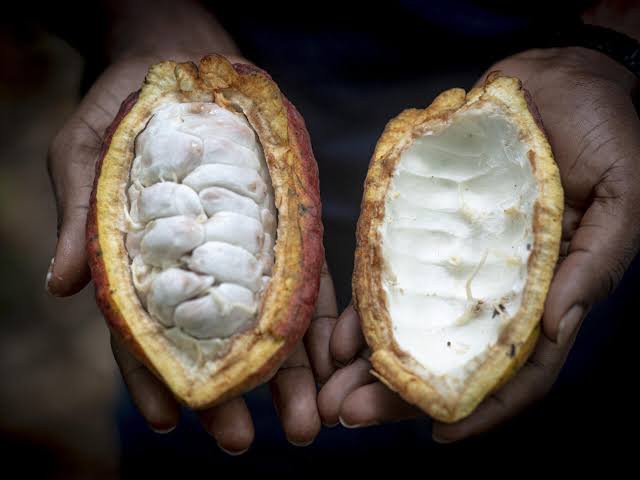Illegal mining, smuggling threaten Ghana’s cocoa industry

Ghana, the world’s second-largest cocoa producer, has grapplled with a dual threat to its cocoa industry—illegal mining and smuggling. This poses not only a risk to the country’s harvest but also deals a significant blow to its already-struggling economy, warn industry officials, farmers, and activists.
Ghana, along with top producer Ivory Coast and other West African neighbors, contributes two-thirds of the global cocoa supply, a vital ingredient in chocolate. The cocoa industry, alongside gold and oil, plays a crucial role in Ghana’s economy and foreign currency earnings. However, ongoing challenges have placed the nation in the midst of its worst economic crisis in decades.
Illegal mining, locally known as “galamsey,” mainly for gold, poses a major threat despite government efforts to crackdown, with Chinese nationals among those implicated. Michael Kwarteng, the director overseeing anti-illegal mining activities at the Ghana Cocoa Board (COCOBOD), expressed deep concern about the escalating destruction of cocoa farms over the past five years, reaching alarming proportions.
Despite incentive packages aimed at helping cocoa producers, farmers are succumbing to lucrative deals, trading their land for illegal mining. Rita Abena Koranteng, a 45-year-old cocoa farmer, revealed that tough economic times led her to lease her land for mining, earning $500 monthly, a more attractive option than cocoa farming.
The impact on cocoa production is evident, with harvests dwindling in recent years due to illegal mining. COCOBOD reported a decrease from one million tonnes in 2020-2021 to 750,000 tonnes for the 2022-2023 crop, with a forecast of 750,000 to 800,000 tonnes for the upcoming season. The government responded by announcing a 63% increase in cocoa prices, aiming to stabilize the industry.
Kwarteng emphasized that the land lost to illegal mining now constitutes two percent of Ghana’s total cocoa cultivation area. Farmers, at times, are deceived into handing over land to miners claiming government permits. This alarming trend jeopardizes Ghana’s status as an economic star, now grappling with a $3-billion IMF credit deal to bolster its finances amid rising inflation and public debt.
Illegal mining is not the sole concern; smugglers also target cocoa crops. COCOBOD responds by offering cash rewards to whistleblowers reporting illegal activities. In 2022, Ghana lost 150,000 metric tonnes of cocoa beans to smuggling, translating to a staggering $600 million in lost revenue.
With six main cocoa-cultivating regions in Ghana, production has shifted westward due to fluctuating rainfall and soil fertility decline. The Western Region now leads in cocoa production, accounting for 43% of the total, yet faces the growing challenge of illegal mining.
Obed Owusu-Addai of EcoCare Ghana advocates for urgent government intervention to improve prices and living standards, warning that the nation sits on a “time bomb.” Without swift resolution, the risk of losing vast lands to illegal mining looms large, jeopardizing the cornerstone of Ghana’s economy.












